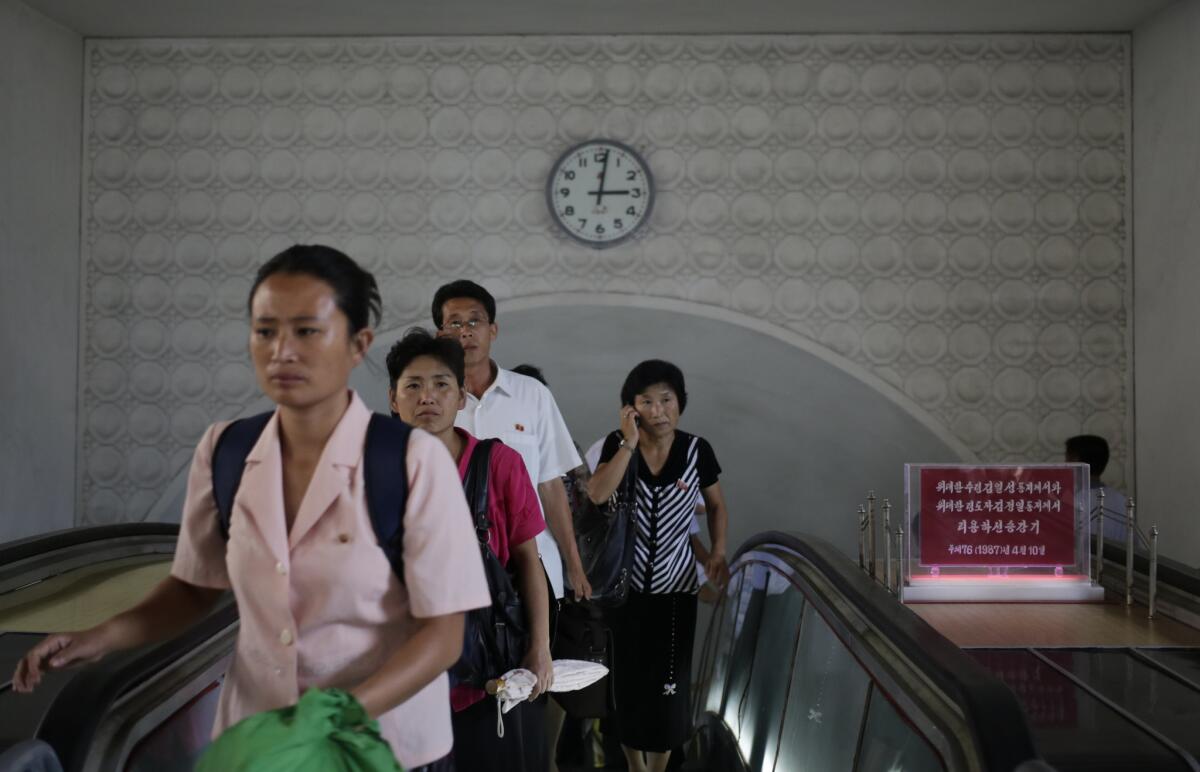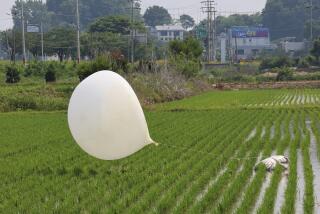In a swipe at Japan, North Korea creates new time zone

North Koreans leave an underground train station in Pyongyang on Sept. 1, 2014.
North Korea is frequently accused of turning back the clock on human rights, economic development and diplomacy.
But on Friday, the impoverished and reclusive nation took the expression to a whole new level.
North Korea will adopt a new time zone -- Pyongyang Time -- to cast off the legacy of “wicked Japanese imperialists,” the country’s state-controlled Korean Central News Agency reported. The new time zone will take effect Aug. 15 to mark the 70th anniversary of the country’s independence from Japanese rule at the end of World War II.
Since Japan colonized the country in 1910, its clocks have been set to 9 hours ahead of Greenwich Mean Time, the same as Japan and South Korea. Pyongyong’s new time zone, 8 1/2 hours ahead of GMT, is a reversion to its pre-colonial past.
“The wicked Japanese imperialists committed such unpardonable crimes as depriving Korea of even its standard time while mercilessly trampling down its land with 5,000-year-long history and culture and pursuing the unheard-of policy of obliterating the Korean nation,” said the agency, which is notorious for its belligerent screeds.
NEWSLETTER: Get the day’s top headlines from Times Editor Davan Maharaj >>
“It is the firm faith and will of the DPRK’s service personnel and people to force the Japanese imperialists to pay for the monstrous crimes committed by them for a century, firmly defend the national sovereignty and demonstrate for eternity the dignity and might of the great ... nation shining with the immortal august names of Kim Il Sung and leader Kim Jong Il,” it continued.
North Korea and South Korea split into two sovereign countries -- the north socialist, the south capitalist -- following their 1945 liberation from the Japanese. They remain divided by the world’s most heavily fortified border, established in 1953 at the end of the Korean War.
South Korea’s Unification Ministry has said that the time zone change could bring minor inconveniences to operations in North Korea’s Kaesong Industrial Region, where many companies are jointly operated by the two countries.
“And in the longer term, there may be some fallout for efforts to unify standards and reduce differences between the two sides,” Unification Ministry official Jeong Joon-Hee told the BBC.
Twitter: @JRKaiman
ALSO:
‘Numb, sad, angry’ -- families absorb news about Malaysia Air Flight 370
In wake of Typhoon Soudelor, Saipan gets U.S. aid; storm heads for Taiwan
Japan marks 70th anniversary of Hiroshima atomic bombing
More to Read
Sign up for Essential California
The most important California stories and recommendations in your inbox every morning.
You may occasionally receive promotional content from the Los Angeles Times.










